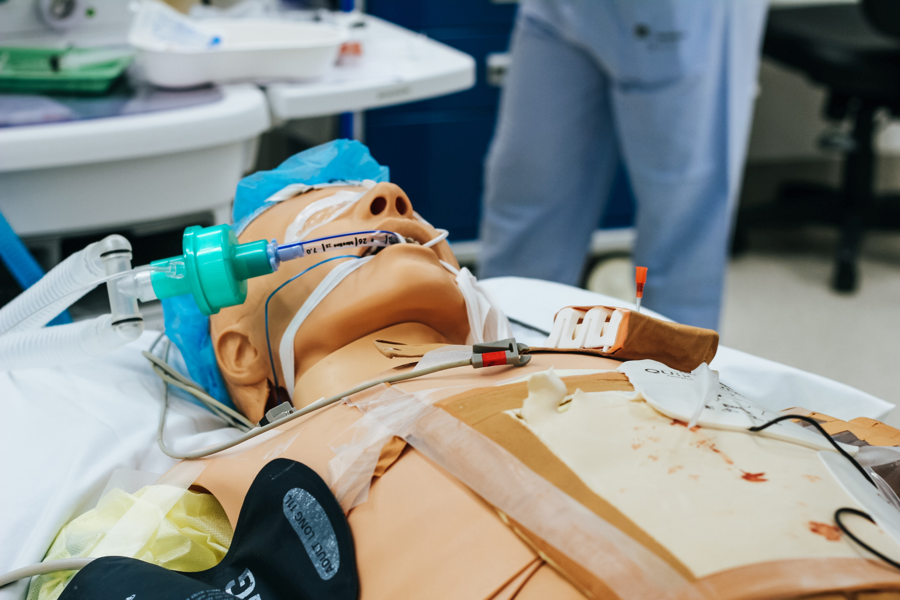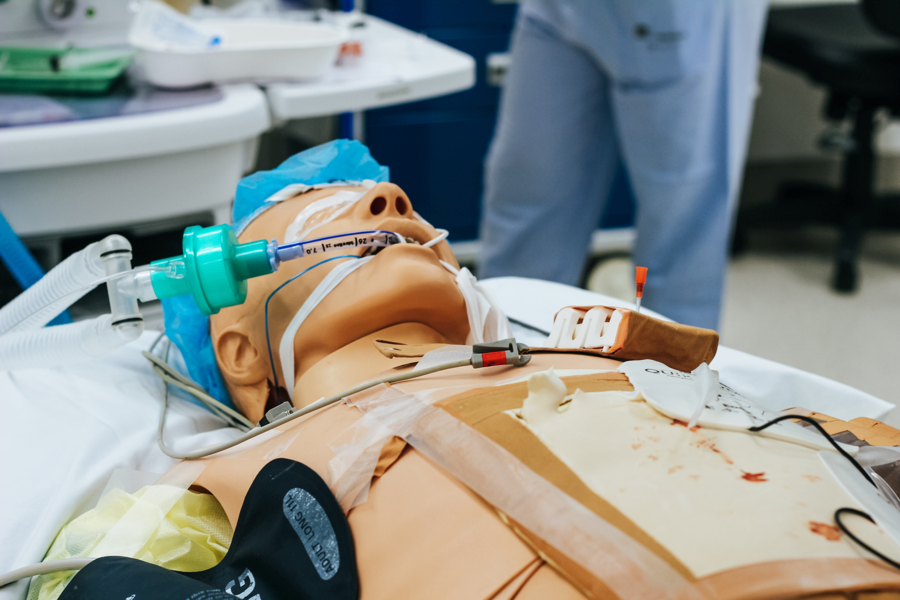
BSN Degree
-
 EveryNurse Staff
EveryNurse Staff
- Last Updated: September 17, 2023
In this guide, we explore Bachelor of Science in Nursing (BSN) programs, including the various concentrations you can pursue, program types, and the benefits of holding a BSN degree.

A Bachelor of Science in Nursing (BSN) is not just a degree; it’s a gateway to a fulfilling career in healthcare. If you’re passionate about nursing and aspire to make a real impact, understanding the journey to this degree is crucial.
Your pursuit of a BSN isn’t just about acquiring knowledge; it’s a transformative experience that prepares you to lead in a dynamic field where empathy, skill, and innovation intersect. Whether you’re a fresh high school graduate or a seasoned healthcare professional seeking a career shift, there’s a BSN program tailored to your needs.
What Is a BSN Degree?
A BSN, which stands for Bachelor of Science in Nursing, is a four-year, undergraduate, pre-licensure program that prepares students for a career in nursing. The BSN degree is the most respected and comprehensive post-secondary nursing program leading to practice as a registered nurse. It prepares students for leadership roles in nursing practice, health care administration, teaching, clinical research, and policy planning. Nurses who graduate with a BSN degree are eligible to sit for the NCLEX-RN exam and to enter practice as registered nurses.
Types of BSN Programs
Traditional BSN Programs
A traditional BSN program follows a typical baccalaureate format. Students in a traditional BSN program take general education courses for two years before entering into a nursing major.
Students begin by taking liberal arts and sciences courses such as biology, chemistry, math, psychology, sociology, and English. Following this period of education are an additional two years of nursing courses that include anatomy and physiology, microbiology, nursing assessment, nursing theory, nursing research, infection control, pharmacology, and clinical practice.
LPN to BSN Programs
RN to BSN Programs
RN to BSN Bridge programs cater to registered nurses with an ADN who are already possess a strong foundation in nursing, but want to earn a BSN degree. As the name suggests, a bridge program bridges the gap between two programs that normally require different amounts of education and training. RN to BSN programs offer ADN-educated nurses the opportunity to complete their degree in as little as 12 months of full-time study by giving them credit for previous nursing education and experience.
Accelerated / Second Degree BSN Programs
Benefits of a BSN Degree
- According to the AACN, registered nurses with a BSN are linked to better patient outcomes.
- BSN-educated nurses typically earn more than nurses with an Associate’s degree.
- Many employers prefer BSN nurses to those with an Associate’s degree.
- 94% of BSN graduates received job offers within 4-6 months after graduation according to recent surveys.
- BSN nurses are prepared for advanced roles in management, research, and clinical practice, such as department coordinator roles and nurse manager positions.
- A BSN degree opens opportunities to advance to a graduate-level nursing program, such as a Master of Science in Nursing (MSN) or a Doctor of Nursing Practice (DNP).
BSN Degree Online
Nursing schools are increasingly offering online programs that cover much of the same content as traditional nursing programs delivered in a face-to-face format. Online BSN programs are designed to meet the same academic and clinical learning objectives as traditional BSN programs. Students enrolled in an online BSN program will receive a mix of traditional in-class instruction, independent study, and online platforms for sharing course content and communicating with classmates and educators.
These programs are often referred to as “blended” or “hybrid” programs, because of the “blend” of traditional classroom education and online learning. These types of programs are growing in popularity as they provide students with the best of both worlds: the flexibility of learning when and where they choose along with an intimate and supportive learning environment on campus.
BSN Degree Requirements
Admission requirements for BSN programs vary by school, but generally, students should expect intense competition and a challenging application process. Candidates must be prepared to demonstrate mastery of key concepts and knowledge, while also providing compelling reasons why they should be admitted into the program over other applicants.
The requirements for BSN programs generally include:
- Cumulative high school GPA of 3.0 or higher.
- Prerequisite courses in Biology, Chemistry, Algebra, social sciences and natural science with a minimum grade.
- Optional SAT or ACT exam scores with a minimum combined score of 1080 (SAT) or composite score of 21 (ACT).
- Personal statement that demonstrates academic, professional, personal and extracurricular qualifications not reflected in your transcripts.
- One letter of recommendation, preferably from a math or science teacher who can address the candidate’s potential to succeed in a nursing degree program.
- English language proficiency that meets the demands of classroom instruction, written assignments, and discussions.
- If English is not the applicant’s first/primary language, they must have a minimum TOEFL score determined by their state.
- Candidates must pass a criminal background check and a health and physical examination.
- Candidates must complete all required immunizations prior to entry into the program.
BSN Degree Concentrations
Emergency Room Care
Neonatal Practice
Palliative Care
Cardiac Care
Psychiatric Care
Oncology
An oncology nurse is responsible for treating patients with cancer or other cancer-related conditions. Oncology nurses work to manage the symptoms of cancer and improve the quality of life of patients and their families. They provide comprehensive care for patients with all forms of cancer, such as breast cancer, colon cancer, and lung cancer. They also provide emotional support, information, and resources to help patients cope with treatment, prepare for surgery, radiation therapy, or chemotherapy sessions, etc.
BSN Degree Near Me










